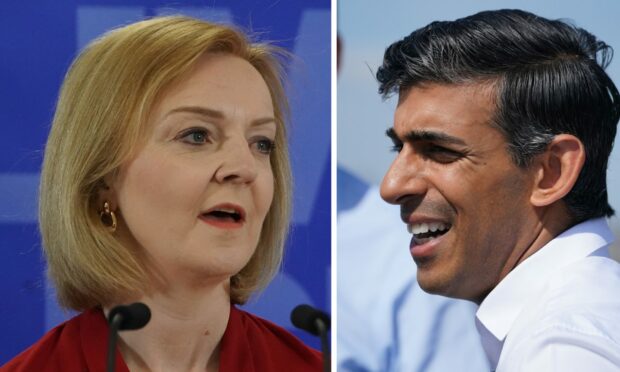Small businesses in Scotland grappling with worker shortages and spiralling cost crisis will need the new UK prime minister to help – whoever it is that wins, a business organisation has said.
Problems including mounting overheads, skills shortages and concerns about the economy have punctured Scottish business confidence over the last three months according to new research conducted by the Federation of Small Businesses (FSB).
About nine in 10 Scottish firms (91%) reported an increase in costs in the second quarter of 2022 survey work, the FSB’s Small Business Confidence index for Scotland revealed.
The statistics show the average Scottish business owner is now more pessimistic than the UK average.
Confidence back down to pandemic lows
The index measures businesses’ views on whether trading conditions will improve or deteriorate over the coming months.
This quarter’s Scottish figure is the lowest since the last three months of 2020 when the pandemic was raging.
Access to skilled staff was raised as one of the biggest barriers to growth by around two in five (39%) Scottish respondents, only behind concerns about the domestic economy which were cited by three in five operators (59%).
The research also found three in five (61%) Scottish businesses have been running below capacity over the quarter.
Asked to identify the source of increasing costs, 73% of Scottish businesses pointed to fuel and 67% highlighted utilities.
Recruitment particularly hard for rural businesses
Andrew McRae, FSB’s policy chairman north of the border, said: “Across Scotland, many independent and local businesses are finding trading conditions merciless.
“Overheads are rising, and every penny spent at the pump or on energy bills is cash that can’t be used elsewhere.
“Businesses in sectors such as retail, tourism and hospitality – especially in rural areas – are finding it difficult to recruit and retain staff.
“These factors mean that far too many businesses say they’re operating at far from their maximum capacity, which in turn slows down their ability to recover from the hits they took over the course of the pandemic.”
“Whoever is next to get the keys to 10 Downing Street should prioritise measures to help local and independent firms face these challenges and play their part in economic recovery.”
A recent statistical publication from the Office for National Statistics and Scottish Government found that, while a majority of Scottish businesses are seeing month-on-month increases to overheads, only about a quarter are passing them on to their customers.
The same research found difficulties in recruiting employees had been experienced by almost half (45%) of Scottish businesses.
The FSB’s Small Business Confidence index for Scotland collapsed to -31.8 points for the second quarter of 2022, down from a positive +14.3 points recorded at the start of the year.
However, the UK index has also dropped, falling to -24.7 points and down more than 40 points on the same quarter last year.


Conversation